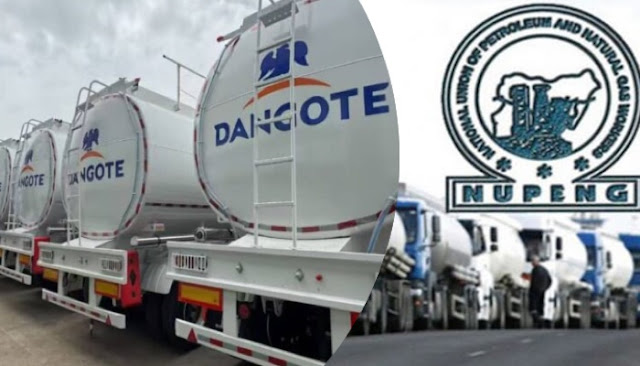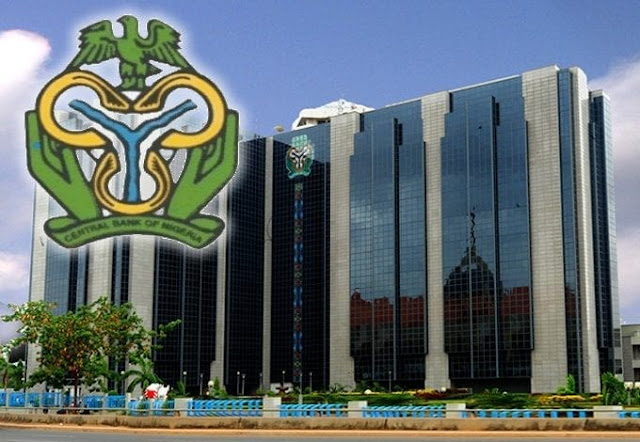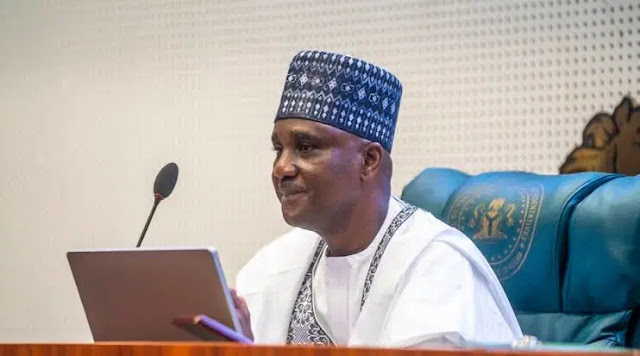In a bid to forestall a looming nationwide strike that could cripple Nigeria’s economy, the Federal Government has summoned key stakeholders, including officials from Dangote Industries and the Nigeria Union of Petroleum and Natural Gas Workers (NUPENG), for an emergency meeting. The development comes in response to escalating tensions between the Dangote Group, one of Africa’s largest conglomerates, and NUPENG, a powerful trade union representing workers in Nigeria’s critical oil and gas sector. The dispute, which has the potential to disrupt fuel supply chains and exacerbate economic challenges in the country, has prompted swift intervention from the government to avert a crisis that could have far-reaching consequences for millions of Nigerians.
Background of the Dispute
The conflict between Dangote Industries and NUPENG stems from a series of disagreements over labor practices, working conditions, and contractual obligations at the Dangote Refinery, a flagship project of the Dangote Group. The $20 billion refinery, located in the Lekki Free Trade Zone in Lagos State, is one of the largest single-train refineries in the world and is seen as a game-changer for Nigeria’s energy sector. The facility, which is nearing completion, is expected to process 650,000 barrels of crude oil per day, potentially making Nigeria a net exporter of refined petroleum products and reducing the country’s dependence on imported fuel.
However, despite its ambitious goals and transformative potential, the refinery has been at the center of labor disputes that have threatened to derail its progress. NUPENG, which represents a significant portion of the workforce involved in the project, has raised concerns about alleged unfair labor practices, including poor working conditions, inadequate remuneration, and the use of casual or contract labor in place of permanent employment. The union has accused the management of Dangote Industries of violating labor laws and failing to honor agreements reached during previous negotiations.
In response, Dangote Industries has defended its practices, arguing that it adheres to all relevant labor regulations and has made significant efforts to provide competitive wages and benefits to its workers. The company has also emphasized the economic importance of the refinery, noting that its completion will create thousands of jobs, boost local refining capacity, and contribute to Nigeria’s economic diversification. However, these assurances have done little to placate NUPENG, which has threatened to mobilize its members for a nationwide strike if its demands are not met.
NUPENG’s Grievances and Threats of Strike
NUPENG’s grievances are multifaceted, reflecting long-standing issues within Nigeria’s oil and gas sector. The union has accused Dangote Industries of exploiting workers by offering low wages, denying benefits such as health insurance and pensions, and employing a large number of workers on a temporary or casual basis. According to NUPENG, these practices not only undermine workers’ rights but also contribute to job insecurity and poor living standards for employees who are critical to the refinery’s operations.
In addition to concerns about working conditions, NUPENG has raised issues about the safety of workers at the Dangote Refinery. The union claims that inadequate safety measures have led to accidents and injuries at the facility, with some workers reportedly suffering long-term health consequences. NUPENG has called for stricter enforcement of safety standards and compensation for affected workers, as well as greater transparency in the company’s labor practices.
The union’s threat to embark on a nationwide strike is particularly significant given its influence within Nigeria’s oil and gas industry. NUPENG represents a wide range of workers, including those involved in the transportation and distribution of petroleum products. A strike by the union could disrupt the supply of fuel across the country, leading to long queues at filling stations, skyrocketing fuel prices, and disruptions to transportation and other sectors of the economy. Such an outcome would have a devastating impact on ordinary Nigerians, who are already grappling with high inflation, rising food prices, and economic uncertainty.
Federal Government’s Intervention
Recognizing the gravity of the situation, the Federal Government has taken proactive steps to address the dispute and prevent a nationwide strike. The government has invited representatives from Dangote Industries and NUPENG to a high-level meeting to discuss the issues at hand and find a mutually acceptable resolution. The meeting, which is expected to take place in Abuja, will involve officials from the Ministry of Labour and Employment, the Ministry of Petroleum Resources, and other relevant government agencies.
The government’s decision to intervene reflects its awareness of the broader implications of a strike in the oil and gas sector. Nigeria’s economy is heavily reliant on oil, which accounts for a significant portion of government revenue and foreign exchange earnings. Any disruption in the sector could exacerbate the country’s economic challenges, particularly at a time when the government is working to stabilize the naira and attract foreign investment.
In a statement, the Minister of Labour and Employment, Dr. Chris Ngige, emphasized the government’s commitment to ensuring industrial harmony and protecting the interests of all stakeholders. “The Federal Government is deeply concerned about the ongoing dispute between Dangote Industries and NUPENG,” Ngige said. “We are committed to facilitating dialogue between the two parties to ensure that their grievances are addressed in a fair and transparent manner. A nationwide strike would have severe consequences for the economy and the Nigerian people, and we are determined to prevent such an outcome.”
The Role of the Dangote Refinery
The Dangote Refinery is a cornerstone of Nigeria’s efforts to achieve energy self-sufficiency and reduce its reliance on imported petroleum products. The facility, which is expected to begin full operations in the coming months, has the capacity to meet Nigeria’s entire demand for refined products such as petrol, diesel, and aviation fuel, with surplus available for export. The project has been hailed as a landmark achievement for Nigeria’s private sector and a testament to the vision of Aliko Dangote, Africa’s richest man and the founder of the Dangote Group.
However, the refinery’s progress has been marred by challenges, including delays in construction, funding constraints, and now labor disputes. The ongoing conflict with NUPENG threatens to further delay the project’s completion and could undermine public confidence in the refinery’s ability to deliver on its promises. For Dangote Industries, resolving the dispute with NUPENG is critical not only to maintaining industrial peace but also to ensuring the timely completion of the refinery and the realization of its economic benefits.
Economic Implications of a Potential Strike
The threat of a nationwide strike by NUPENG comes at a particularly challenging time for Nigeria’s economy. The country is grappling with a range of economic issues, including high inflation, unemployment, and a volatile exchange rate. The removal of fuel subsidies in 2023 has already led to a significant increase in fuel prices, placing additional financial burdens on households and businesses. A strike that disrupts fuel supply would exacerbate these challenges, leading to higher transportation costs, food price spikes, and disruptions to economic activity.
Moreover, a strike could have ripple effects beyond Nigeria’s borders. The Dangote Refinery is expected to supply refined petroleum products to other West African countries, helping to address regional fuel shortages and reduce dependence on imported fuel. A delay in the refinery’s operations due to a strike could undermine these regional ambitions and damage Nigeria’s reputation as a reliable energy supplier.
Stakeholder Reactions
The dispute between Dangote Industries and NUPENG has elicited reactions from various stakeholders, including industry experts, civil society organizations, and ordinary Nigerians. Many have called for both parties to prioritize dialogue and compromise to avoid a strike that would harm the country’s economy and its citizens.
The Nigeria Labour Congress (NLC), the umbrella body for trade unions in Nigeria, has expressed solidarity with NUPENG and urged Dangote Industries to address the union’s demands. “We stand with our affiliate, NUPENG, in their struggle for fair treatment and better working conditions,” said NLC President Joe Ajaero. “The Dangote Refinery is a national asset, but it must not come at the expense of workers’ rights and welfare.”
On the other hand, some analysts have cautioned against the potential consequences of a strike, urging NUPENG to consider the broader economic implications of their actions. “While the union’s concerns are valid, a nationwide strike would hurt ordinary Nigerians the most,” said Dr. Adeola Adenikinju, an energy economist at the University of Ibadan. “Both sides need to find a middle ground to ensure that the refinery project moves forward while addressing workers’ grievances.”
The Path Forward
The upcoming meeting between Dangote Industries, NUPENG, and government officials will be critical in determining whether the dispute can be resolved amicably. The government has indicated that it will act as a neutral mediator, facilitating discussions and encouraging both parties to make concessions. Key issues to be addressed include workers’ wages, benefits, job security, and safety standards at the refinery.
For Dangote Industries, the meeting presents an opportunity to demonstrate its commitment to fair labor practices and to restore confidence among its workforce. The company may need to make tangible concessions, such as offering permanent contracts to more workers, improving safety measures, or increasing wages, to appease NUPENG and prevent a strike.
For NUPENG, the meeting is a chance to advocate for its members and ensure that their concerns are taken seriously. However, the union will also need to balance its demands with the need to avoid actions that could harm the broader economy. A prolonged strike could erode public support for the union and weaken its bargaining position.
Broader Context: Labor Relations in Nigeria
The dispute between Dangote Industries and NUPENG is emblematic of broader challenges in Nigeria’s labor market. The country has a long history of industrial disputes, particularly in the oil and gas sector, where workers have frequently clashed with employers over issues such as wages, working conditions, and job security. The government’s role as a mediator in these disputes has often been complicated by its dual role as both a regulator and a major player in the oil industry through the Nigerian National Petroleum Corporation (NNPC).
In recent years, the government has sought to improve labor relations by strengthening labor laws and promoting dialogue between employers and unions. However, enforcement of these laws remains a challenge, and many workers continue to face exploitation and poor working conditions. The outcome of the current dispute could set a precedent for how similar conflicts are resolved in the future, particularly in high-profile projects like the Dangote Refinery.
Conclusion
The Federal Government’s decision to summon Dangote Industries and NUPENG for talks reflects the urgency of resolving the dispute and preventing a nationwide strike that could have devastating consequences for Nigeria’s economy. The Dangote Refinery, once operational, has the potential to transform the country’s energy sector and drive economic growth, but its success depends on the cooperation of all stakeholders, including workers, management, and the government.
As the parties prepare to meet, there is cautious optimism that a resolution can be reached through dialogue and compromise. For Nigerians, who have endured years of economic hardship and fuel scarcity, the hope is that the refinery will deliver on its promise of affordable and reliable fuel, while ensuring that the workers who make it possible are treated fairly and with dignity. The outcome of this dispute will not only shape the future of the Dangote Refinery but also send a message about the state of labor relations in Nigeria’s critical oil and gas sector.






